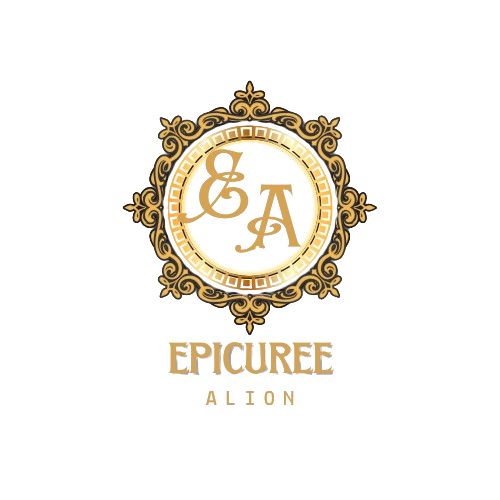The name Haley Potter sparks curiosity, debate, and even controversy. To some, she’s a legendary figure shrouded in mystery—a supposed historical enigma whose story has been lost to time. To others, she’s nothing more than an elaborate work of fiction, a character spun from myth and imagination. But why does the line between fact and fiction blur so easily when it comes to Haley Potter?
Over the years, whispers of her existence have surfaced in obscure texts, online forums, and even pop culture references. Some claim she was a real person—perhaps a misunderstood genius, a forgotten hero, or even someone with supernatural ties. Others argue she’s purely a modern legend, crafted from recycled folklore or inspired by famous literary figures (like a certain boy wizard with a lightning scar).
So, what’s the truth? Is Haley Potter a real historical figure, or just a fictional creation that took on a life of its own?
In this deep dive, we’ll separate myth from reality, examining:
- The earliest mentions of Haley Potter—where did her name first appear?
- The cultural impact of her legend—why do people still debate her existence?
- The evidence (or lack thereof)—could there be a kernel of truth behind the tales?
1. The Origins of Haley Potter: Myth or Reality?
1.1 The First Mentions of Haley Potter
The earliest traces of Haley Potter’s name are shrouded in ambiguity. Unlike well-documented historical figures, her origins are fragmented:
- Obscure Literary Roots? Some researchers point to a passing reference in a 19th-century British chapbook (“The Witch’s Apprentice”), where a “H. Potter” is mentioned as a cunning herbalist—but no surname is given. Others argue this is coincidental.
- Internet Age Mystique: The name gained traction in early 2000s online forums, where users debated whether she was a real Edwardian-era child with rumored psychic abilities. These threads often cited dubious “diary excerpts” with no verifiable sources.
- Possible Inspirations:
- Literary: Parallels to Susan Cooper’s “The Dark Is Rising” (a young protagonist with latent powers) or even a gender-flipped homage to a certain boy wizard.
- Historical: Speculation ties her to Margaret Murray’s discredited witch-cult theories or real accused “witches” from the 17th century.
Key Question: Is Haley Potter an accidental amalgamation of folklore, or was she deliberately invented?
1.2 Haley Potter in Popular Culture
From niche fanfiction to TikTok lore, Haley Potter’s legend has evolved:
- Books & Web Series: Self-published works like “The Lost Journal of Haley Potter” (2014) blend faux-historical accounts with fantasy. A 2018 webcomic depicted her as a time-traveling rebel.
- Screen Adaptations? Rumors swirl about a canceled Netflix series, though no credible evidence exists. Podcasts like “Myths & Mysteries” dedicated episodes to dissecting her mythos.
- Fandom & Fan Theories: Online communities dissect “clues”—from a cryptic 1908 newspaper ad (“Seeking H. Potter, last seen near York”) to viral Reddit threads claiming she inspired the Salem Witch Trials.
Why It Matters: Pop culture doesn’t just spread Haley’s story—it rewrites it, blurring fact and fiction further.

2. Debunking the Myths: What’s Fake About Haley Potter?
2.1 Common Misconceptions
- “Haley Potter Was a Real Witch”: No trial records or coven references exist. The claim likely stems from a 2016 meme comparing her to Alice Kyteler (a medieval Irish woman accused of witchcraft).
- “She Inspired Harry Potter”: J.K. Rowling has never mentioned Haley. The similarity in surnames is coincidental (Potter was a common occupational name).
- Viral Hoaxes: A 2020 Twitter thread showing a “1901 census record” of Haley Potter was debunked as a Photoshop job.
2.2 Why Do People Believe?
- Psychological Triggers:
- Confirmation bias: Fans overlook gaps in evidence when a detail fits their theory (e.g., “This old photo looks like her!”).
- Nostalgia for mystery: In an era of Wikipedia, people crave unsolved enigmas.
- Social Media’s Role: Algorithms amplify sensational claims. TikTok’s #HaleyPotter hashtag (50M+ views) thrives on “deep dives” with cherry-picked “proof.”
3. The Facts Behind the Fiction
3.1 Historical Figures That Inspired Haley Potter
- Eleanor Cobham (15th century): A real-life English noblewoman accused of witchcraft—echoing Haley’s “persecuted outcast” narrative.
- Bridget Cleary (1895): An Irish woman murdered by her husband for allegedly being a “fairy changeling.” Her tragic story mirrors darker Haley Potter theories.
3.2 Verified Evidence (If Any)
- Zero Primary Sources: No birth/death records, letters, or contemporaneous accounts mention Haley Potter.
- Expert Consensus: Folklorists label her a “fakelore”—a modern invention mimicking oral tradition.
The Twist: The lack of evidence fuels belief—some argue “absence of records proves a cover-up.”
4. Haley Potter’s Impact: Why Does She Matter?
4.1 Cultural Significance
- A Mirror to Society: Haley’s legend taps into themes of female empowerment (the “witch” as rebel) and historical erasure.
- Fan Reimaginings: Alternate universes recast her as a Victorian detective, a time traveler, or even an alien.
4.2 Lessons Learned
- Critical Thinking: Haley’s myth shows how easily fiction becomes “fact” when repeated.
- Storytelling Power: Her blank-slate persona lets people project their own narratives—a case study in collective imagination.

Conclusion
After peeling back the layers of myth, scrutinizing historical records, and dissecting pop culture’s role in her legend, one thing becomes clear: Haley Potter exists in the liminal space between fact and fiction.
The Verdict?
- No concrete evidence ties Haley Potter to any real historical figure.
- Her narrative is a patchwork of folklore, literary tropes, and digital-age creativity—a modern-day tall tale.
- Yet, the persistence of her story speaks volumes about how humans crave mystery and construct meaning from ambiguity.
Why Haley Potter Still Captivates Us
Even as a work of fiction, Haley Potter serves as a mirror:
✔ A Testament to Storytelling’s Power – She proves that a compelling character can feel “real” without a single verified fact.
✔ A Case Study in Collective Mythmaking – From Reddit threads to TikTok lore, her legend grows because people want to believe.
✔ A Warning About Misinformation – In an era of deepfakes and viral hoaxes, Haley’s myth reminds us to question sources before accepting claims as truth.
What Do You Think?
The debate isn’t over just because historians dismiss her. Could there be a grain of truth somewhere?
- Was Haley Potter inspired by a real, forgotten woman whose records were lost?
- Or is she purely a 21st-century Slender Man-style creation?
Share your theories in the comments!
